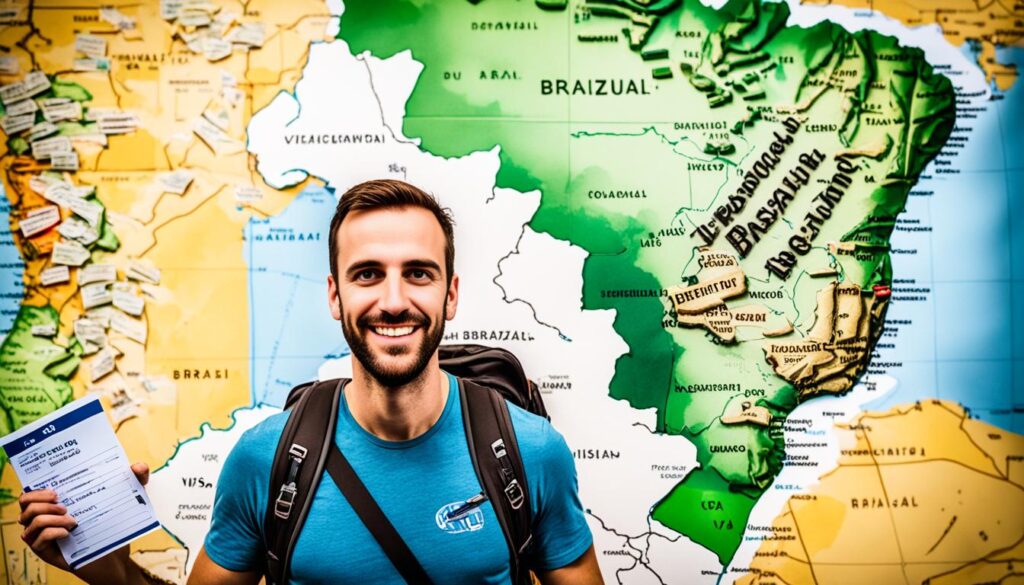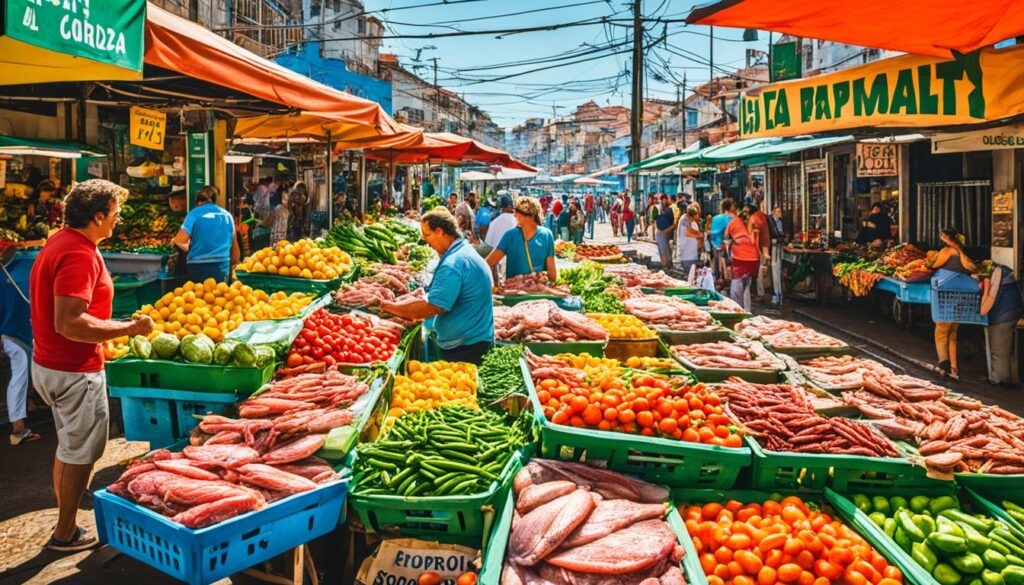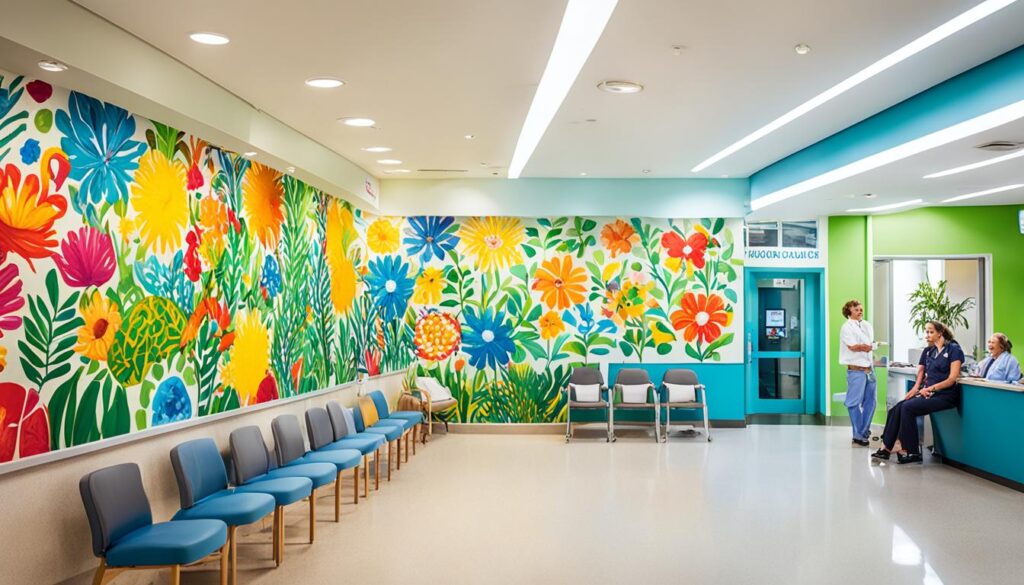Relocating to Brazil presents a unique opportunity to immerse yourself in a country renowned for its vibrant culture, stunning landscapes, and diverse population. With an estimated total population of around 215 million people, including approximately 1.3 million immigrants, Brazil is a melting pot of experiences waiting to be explored12. As you consider how to move to Brazil, this guide will delve into key aspects of the relocation process, arming you with essential information about visa requirements, living costs, and tips for settling into your new life as an expat. Notably, the cost of living in Brazil is significantly lower than in some first-world countries, making it an attractive choice for many23.
This article will cover practical steps to ensure your move is seamless, from understanding the necessary paperwork to budgeting for your new lifestyle. As you embark on this journey of moving abroad to Brazil, you’ll find that the warmth and friendliness of its people can quickly make you feel at home.
Key Takeaways
- Brazil has a population of approximately 215 million people with a significant immigrant community.
- The cost of living is over 40% lower compared to the UK, making it a viable option for expats.
- The country boasts a rich cultural diversity, with Portuguese being the official language.
- Living expenses, including utilities and food, can be about half of what they are in the United States.
- Different visa types cater to various expat needs, including work and permanent residency options.
- Moving to Brazil offers a chance to explore breathtaking natural beauty, such as the Amazon rainforest.
Unlock Investment Opportunities Abroad!
Introduction to Moving to Brazil
Moving to Brazil involves careful planning and an understanding of the Brazil immigration process. This vibrant nation, home to 212 million people, offers a rich cultural landscape and diverse economic opportunities. With a population like this, it’s no surprise that over 70,000 Americans have chosen to make Brazil their home4. Being the largest country in South America, Brazil boasts stunning coastlines—approximately 4,500 miles—which provide a beautiful escape for new residents4.
When considering tips for moving to Brazil, it’s important to engage with existing expatriate communities that can aid in the integration process. Major cities like São Paulo, known to have the largest population in the Southern Hemisphere, present excellent options for newcomers to settle4. Furthermore, Brazil’s thriving industries—ranging from iron and steel to chemical processing—translate to numerous employment opportunities for expatriates4.
Potential movers will find that Brazil offers multiple visa options tailored to various needs, including the requirement of sponsorship for certain types of visas5. Understanding the nuances of living expenses, such as average monthly rents and meal costs, can greatly assist in budgeting prior to relocation. For instance, renting a one-bedroom apartment in urban areas can cost about R$2,500 ($500), while you can expect lower prices in smaller towns5. This detailed exploration aims to equip individuals with essential insights as they embark on this exciting journey.
Why Choose Brazil as Your Expat Destination?
Brazil has emerged as a sought-after location for individuals seeking a vibrant lifestyle, making living in Brazil as an expat an appealing choice. With over 11,000 Brits already residing in the country, it showcases a diverse and engaged expat community from various backgrounds6. The nation’s economy is growing rapidly, creating job opportunities that attract expatriates, especially in sectors like agriculture, mining, and services6. Brazil’s unique blend of natural beauty, festivities, and cultural richness enhances its allure.
The affordable cost of living offers another significant advantage; it’s approximately 40% lower than in the UK when earning a Brazilian wage, making daily life more manageable for newcomers6. Additionally, the country boasts free healthcare for all legal residents alongside private insurance options for those seeking enhanced coverage6. With culinary delights influenced by an array of local ingredients, the Brazilian cuisine provides a scrumptious experience for every palate.
Amid the attractions, navigating the immigration landscape is essential to ensure a smooth transition, particularly regarding acquiring a Brazil residency permit. The nation offers a spectrum of residence visas tailored to various needs, including VITEM for temporary residency, VIPER for permanent residency, and digital nomad visas for remote workers7. Embracing the local language can significantly affect your acclimatization, enabling better communication and deeper connections within the community, as many expatriates attest. Furthermore, engaging with locals during Brazil’s colorful festivals and carnivals fosters a lively cultural exchange that enriches the expatriate experience.
Ultimately, the multitude of factors—from economic growth and welcoming communities to vibrant cultural expressions—position Brazil as a prime destination for those ready to embrace a new way of life.
How to Move to Brazil: Understanding Visa Requirements

Moving to Brazil requires careful planning, particularly regarding the specific Brazilian visa requirements. Individuals seeking a long-term stay in Brazil must secure the appropriate visa before relocating. For expats, various visa types are available depending on personal circumstances and the reason for the move.
Types of Visas Available for Expats
The most common visa options for expats include:
- Family Reunification Visa: Available for those with Brazilian family members.
- Work Visa: Required if you are employed by a Brazilian company.
- Investor Visa: For individuals planning to invest in Brazilian businesses.
- Student Visa: Essential for those who intend to study in Brazil.
Most visitors will need a visa in advance, given that only those from specific visa-exempt nations can stay for up to 90 days without a visa8. Electronic visas allow for a similar duration, and online applications are typically processed within 24 to 72 hours8.
Documents Needed for Visa Application
When applying for a visa, certain essential documents must be submitted. These commonly include:
- Proof of financial stability.
- Marriage or birth certificates, if applicable.
- A completed National Migration Registration Card (CRNM) application upon arrival in Brazil.
Expats considering a long-term stay in Brazil should ensure they have all required documentation ready to streamline their application process. For more detailed information on the requirements for moving to Brazil, visiting official resources is recommended here.
Preparing for Your Move: Budgeting and Cost of Living

Planning your move to Brazil requires careful budgeting for Brazil, especially when it comes to estimating your moving costs and understanding living expenses in various cities. The cost of living in Brazil significantly varies, making it essential to tailor your financial plan according to your chosen destination.
Estimating Your Moving Costs
Your initial expenses should encompass flight tickets, visa fees, shipping household goods, and basic living costs upon arrival. Comprehensive estimates are vital for a smooth transition when moving abroad Brazil. Many new residents overlook the financial impact of their first few months in the country, including hidden costs such as temporary accommodation.
Monthly Living Expenses in Major Cities
Understanding the typical monthly living expenses is crucial, especially in major cities like São Paulo, Rio de Janeiro, and Florianópolis. For example:
| City | Average Monthly Rent (1 BR) | Monthly Expenses (excl. Rent) |
|---|---|---|
| Florianópolis | $409 | $577 |
| Rio de Janeiro | $407 | $629 |
| São Paulo | $589 | $635 |
In Rio de Janeiro, for instance, the overall cost of living is nearly 60% lower than in New York City, with rent being about 88% more affordable. A one-bedroom apartment can be found for as low as $450, while some neighborhoods may offer options in the $500 to $600 range9. With public transportation costing less than $2 per ride and groceries reasonably priced, some residents manage to live comfortably on just $1,000 per month9. Understanding these estimates aids in budgeting for Brazil and sets clear expectations for life in your new environment.
Finding the Right Place to Live in Brazil

Choosing the right city is crucial for a fulfilling experience while living in Brazil as an expat. Brazil offers various vibrant cities that cater to different lifestyles and preferences. Popular cities such as São Paulo, Rio de Janeiro, and Florianópolis stand out for their unique advantages, ranging from career opportunities to breathtaking beaches. Each city’s livability scores provide insights into what to expect, influencing your decision to relocate.
Unlock Investment Opportunities Abroad!
Best Cities for Expats: A Comprehensive Overview
The top cities for expats in Brazil include São Paulo, Salvador, Recife, and Rio de Janeiro. São Paulo is the largest city in Brazil with a population of over 12 million, making it a bustling hub of economic activity, contributing to about 34% of Brazil’s gross domestic product (GDP)10. In contrast, Rio de Janeiro, with an estimated population of 6.45 million, offers a lively cultural scene and beautiful views10. Below is a summary of noteworthy cities for expats:
| City | Population | Livability Score | Average Monthly Living Costs (USD) |
|---|---|---|---|
| São Paulo | 12 million | 65 | $2,341 (family of four) |
| Rio de Janeiro | 6.45 million | 58 | $2,110 (family of four) |
| Florianópolis | 500,000 | 56 | $1,062 (family of four) |
| Brasília | 2.48 million | 54 | $1,500 (family of four) |
Real Estate Market and Rental Options
The real estate market in Brazil varies significantly from city to city. In major urban areas, expats can find diverse rental options, from modern city apartments to charming beach houses. The average rent for a one-bedroom apartment in São Paulo hovers around $575, while in Rio de Janeiro, it can be approximately $38011. Different neighborhoods attract expats based on their character and amenities:
- São Paulo: Vila Madalena is known for its artistic vibe.
- Rio de Janeiro: Rio Vermelho is popular for its nightlife and culture.
- Florianópolis: Praia Mole is a go-to for beach lovers.
- Brasília: Asa Norte is favored for its residential charm.
Understanding the local real estate market Brazil is essential for securing the best accommodations that suit your needs. With insights from different cities, expats can make informed decisions that enhance their living experience in this vibrant country best places to live in Brazil while enjoying the unique culture and lifestyle each location offers.
Healthcare and Education Considerations in Brazil

When moving to Brazil, understanding the healthcare and education landscape is crucial for expats. Brazil features a well-structured healthcare system with a mix of public and private services, alongside diverse educational options. Whether residing in bustling metropolitan areas or smaller towns, expats can find suitable institutions and healthcare facilities.
Public vs. Private Healthcare Systems
The healthcare system in Brazil is composed of a public sector operated by the Sistema Único de Saúde (SUS) and a private sector that many expats prefer. The SUS provides free healthcare to all residents, an approach that benefits the approximately 213.3 million people living in Brazil, among whom about 24.1% reside below the poverty threshold of USD 5.5 a day12. On the other hand, private healthcare is characterized by shorter wait times and higher quality services. As of 2018, about 23% of Brazilians had private medical insurance, with nearly 70% of beneficiaries receiving it as an employment benefit13. For those accustomed to having quick access to medical care, private insurance becomes essential.
Education Options for Expat Families in Brazil
Education in Brazil offers a range of options for expat families, including public, private, and international schools. Public schools primarily teach in Portuguese and may vary in quality, while private institutions cater to different curriculums that could be more aligned with expat needs. In 2021, Brazil boasted 4607 postgraduate programs recognized by CAPES, with 721 specifically in health sciences12. For families considering long-term education solutions, the country provides various educational pathways, including opportunities in multidisciplinary programs that cover fields such as Environmental Sciences and Biotechnology12.
Ultimately, navigating these sectors requires families to weigh options based on their specific needs and preferences. Assessing the benefits and drawbacks of both public and private systems in healthcare, as well as the educational opportunities available, will greatly enhance expats’ experiences in Brazil.
How to Move to Brazil: Practical Steps for Relocation
Successfully relocating to Brazil involves various practical steps. Establishing a thorough document checklist is vital, encompassing essential paperwork such as the temporary work visa, copies of passports, and Brazilian tax cards. Preparing adequate inventories in Portuguese significantly eases customs processes. Numerous documents are required, including the ISPM-15 Fumigation Certificate, which is crucial for moving household goods to Brazil14. The checklist should also encourage individuals to prepare their homes adequately before packing14.
Document Checklists and Important Paperwork
- Temporary work visa
- Copies of passports
- Brazilian tax cards
- Detailed inventories in Portuguese
- Customs documentation preparations
- ISPM-15 Fumigation Certificate (if applicable)
Regarding the shipping of household goods, careful research and comparisons of moving companies help in planning the logistics. Engaging international movers, like Sterling Lexicon, with expertise in packing can ensure a smoother process14. This comparison involves obtaining estimates on shipping costs and recognizing the significance of eco-friendly materials to promote sustainability14.
Shipping Household Goods and Managing Finances
As expatriates transition to living in Brazil, another critical aspect is managing finances in Brazil. Understanding local currency exchange, establishing a local bank account, and being aware of Brazilian tax obligations will facilitate integration into daily life15. Reports suggest that delays in document acquisition could affect financial planning and settling in, so hiring local experts for support can streamline this process15. It is essential to approach your financial strategy with care alongside the practicalities of shipping household goods to Brazil.
Settling into Life as an Expat in Brazil
Expat life in Brazil offers a vibrant experience, but settling in requires a conscious effort to understand local culture and social norms. Engaging with the community can be transformative; for example, attending neighborhood festas or joining local clubs fosters friendships that ease the transition into this diverse nation. With more than 216 million people, Brazil’s population reflects a rich tapestry of cultures, predominantly influenced by European, African, and Indigenous heritages1617.
In cities like São Paulo, known for its dynamic lifestyle and a whopping population of over 22 million16, learning Portuguese becomes essential. As the official language, Portuguese not only facilitates daily interactions but also enhances your understanding of Brazil’s culture. With only about 5% of the population speaking English fluently17, being able to communicate in Portuguese can significantly improve your expat life in Brazil.
Navigating bureaucratic processes can seem daunting, yet familiarizing yourself with the local systems can lessen the burden. Basic necessities like healthcare and employment have ample resources, as many companies provide health benefits and a structured framework for foreign employees18. Understanding local labor laws and the nuances of daily life, such as customary tipping at around 10%, will help you blend in seamlessly.
Connecting with fellow expats through social media or community events can create a support network to guide you through common challenges. Embracing the multifaceted lifestyle in Brazil, complete with its fantastic food, diverse landscapes, and tropical climate, makes adapting to Brazil a rewarding journey. The vibrant community spirit and engaging local cultures will not only welcome you but enrich your new home experience16.
Conclusion
Moving to Brazil offers a wealth of opportunities and unique experiences, making it a compelling choice for many expats. This overview not only highlights the practical elements involved in the moving process, such as understanding visa requirements and budgeting for living expenses, but also emphasizes the significance of preparation and adaptability to cultural differences. Success in relocation lies in being open to new experiences and forming connections within the vibrant community.
The highlights of this guide are designed to make the summary of the moving process seamless for newcomers. As reflected in personal accounts, including the journey to Rio de Janeiro, the transition is as much about embracing a new lifestyle as it is about logistics. Attributes like the warmth of friendship and support underpin the essence of living in Brazil, enabling individuals to focus on personal growth and fulfillment. For further insights, consider exploring shared experiences in this account of living in Brazil.
As individuals embark on their journey to a country as diverse and culturally rich as Brazil, the importance of self-awareness and personal ambitions remains prominent. The adventure ahead, enriched by the joys of new friendships and learning opportunities, can lead to a profoundly rewarding lifestyle. The goal of moving to Brazil isn’t just about relocating; it’s about creating a life full of happiness, fulfillment, and vibrant experiences amidst a community that embraces you1920.
Unlock Investment Opportunities Abroad!
FAQ
What are the different types of visas available for moving to Brazil?
How much does it cost to live in Brazil?
What documents do I need to apply for a Brazilian visa?
Is healthcare in Brazil free or do I need insurance?
What are some tips for adapting to life in Brazil as an expat?
What should I consider when budgeting for my move to Brazil?
How can I find accommodation in Brazil?
What is the bureaucratic process for moving to Brazil?
Source Links
- https://www.william-russell.com/blog/moving-to-brazil-as-an-expat/
- https://immiguides.com/immigration-guides/brazil/
- https://www.internations.org/brazil-expats/guide/moving-to-short
- https://wise.com/us/blog/moving-to-brazil
- https://www.deel.com/blog/moving-to-brazil-for-expats/
- https://www.bishopsmove.com/blog/10-reasons-why-a-move-to-brazil-is-your-next-step/
- https://www.globalcitizensolutions.com/moving-to-brazil/
- https://www.visahq.com/brazil/
- https://www.gninsurance.com/blog/travel-smarter/stretching-your-dollars-in-rio-living-on-a-budget-in-brazil/
- https://www.aetnainternational.com/en/individuals/destination-guides/expat-guide-to-brazil/where-to-live.html
- https://blog.remitly.com/immigration/expats-guide-to-moving-to-brazil/
- https://www.ncbi.nlm.nih.gov/pmc/articles/PMC9407755/
- https://www.commonwealthfund.org/international-health-policy-center/countries/brazil
- https://www.sterlinglexicon.com/moving-services/moving-to-brazil-from-spain-checklist
- https://www.linkedin.com/pulse/navigating-relocation-process-brazil-comprehensive-guide-ruch-ccbxf
- https://www.expatarrivals.com/americas/brazil/moving-brazil
- https://www.expatriatehealthcare.com/country-facts/brazil-information/
- https://www.linkedin.com/pulse/dos-donts-expats-working-living-brazil-john-ej
- https://life-longlearner.com/brazil/
- https://internationalvanlines.com/moving-to-brazil-from-the-us/

Comments